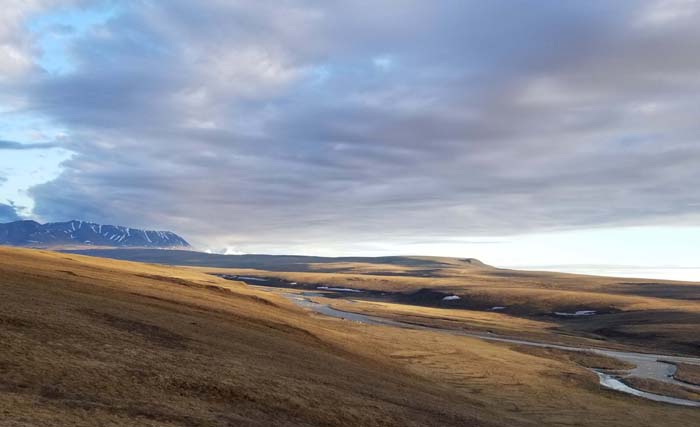WASHINGTON, D.C. -- Tonight, the House of Representatives passed H.R. 2, the Moving Forward Act. In addition to upgrading our crumbling infrastructure to face the increased threats posed by climate change, the $1.5 trillion package includes investments in clean energy, public lands, pipes for safe drinking water, and our transportation system. In response, Sierra Club Executive Director Michael Brune released the following statement:

The Arctic National Wildlife Refuge is one of America's last truly wild places and must be preserved. | Photo by Loren Blackford
Public lands and waters should never be threatened by oil and gas drilling. We work to protect these special places from legislative assaults and federal regulatory rollbacks that threaten to open them up to exploitation by the fossil fuel industry.
Press Releases
WASHINGTON, D.C. -- In a 73-25 vote, the United States Senate overwhelmingly passed the Great American Outdoors Act on June 17. It now awaits consideration by the House of Representatives. The bipartisan bill would permanently fund the Land and Water Conservation Fund, providing funding for conservation and public recreation projects across the country. It would also address the nearly $12 billion maintenance backlog in national parks and other public lands.
Boston, MA— Today as the country faces an uprising for racial justice and ongoing pandemic, President Trump announced he will effectively eliminate protections for Northeast Canyons and Seamounts National Monuments in the Atlantic Ocean off the East Coast. The rollback will allow commercial fisheries to operate in the marine sanctuary— home to endangered coral and fish— and comes on World Environment Day.
Washington, DC— The Sierra Club secured over 14,437 documents from the Department of the Interior through the Freedom of Information Act (FOIA), including call logs, meetings and email communications that are now available for the public. Find and search the documents online here. Included in the lowlights are:
Reporting from Reuters reveals that the Trump administration has chosen this moment -- in the midst of historic economic fallout from the coronavirus pandemic that’s decimating the clean energy industry -- to squeeze clean energy companies for millions of dollars.
TUCSON, Arizona— The Trump administration’s latest border wall plan, which would wall off the last jaguar migration paths and bulldoze Arizona’s Sky Island mountains, has drawn opposition from thousands of people across the country.
Washington, DC-- Today, Secretary of the Interior Bernhardt officially extended the Bureau of Land Management Acting Director Pendley’s appointment until June 5, 2020. In response, Lena Moffitt, Director of the Sierra Club’s Our Wild America campaign, released the following statement:
Salt Lake City, UT— Ahead of Utah’s June and September Bureau of Land Management (BLM) oil and gas lease sales, Utah organizations called on BLM Acting State Director Anita Bilbao and Secretary of the Interior David Bernhardt to suspend public comment periods, rulemakings, and other actions as communities face the coronavirus crisis. In the letter, the groups noted that, given the current public health crisis, communities are focused on their immediate needs and health— making it difficult to meaningfully participate in the public input process.
WASHINGTON, D.C. -- Rep. Westerman today introduced the Trillion Trees Act. The bill is one of three components of Republicans’ legislative attempts to address climate change. Trump has endorsed tree planting to fight climate change, despite repeatedly denying the current climate crisis.
WASHINGTON, DC— Today, the House of Representatives will vote on the Protecting America’s Wilderness bill that includes the Colorado Wilderness Act— legislation that would safeguard more than 740,000 acres of land located in 33 critical wildlife and ecologically-sensitive areas in Colorado.